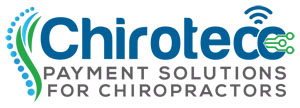Address Verification Services is a fraud prevention measure used by merchants and payment processors to verify the address of a person making a purchase with a credit card. AVS is designed to help merchants reduce the risk of fraudulent transactions by verifying that the address provided by the cardholder matches the billing address on file with the card issuer.
How Does AVS Work?
AVS works by comparing the billing address provided by the cardholder with the billing address on file with the card issuer. The system then assigns a code to indicate the degree of match between the two addresses. The codes used by AVS vary depending on the country and card issuer, but generally fall into three categories:
- Match: The address provided by the cardholder matches the billing address on file with the card issuer.
- Partial Match: The street address provided by the cardholder matches, but the postal code does not.
- No Match: The address provided by the cardholder does not match the billing address on file with the card issuer.
Merchants can use the AVS response code to decide whether to accept or decline a transaction. For example, if the AVS response code indicates a partial match, the merchant might require additional verification from the cardholder, such as a phone call or email to confirm the transaction.
AVS Protects Merchants
Overall, AVS is a useful tool for merchants to help prevent fraudulent transactions and protect themselves from chargebacks and other issues related to credit card fraud.



0 Comments